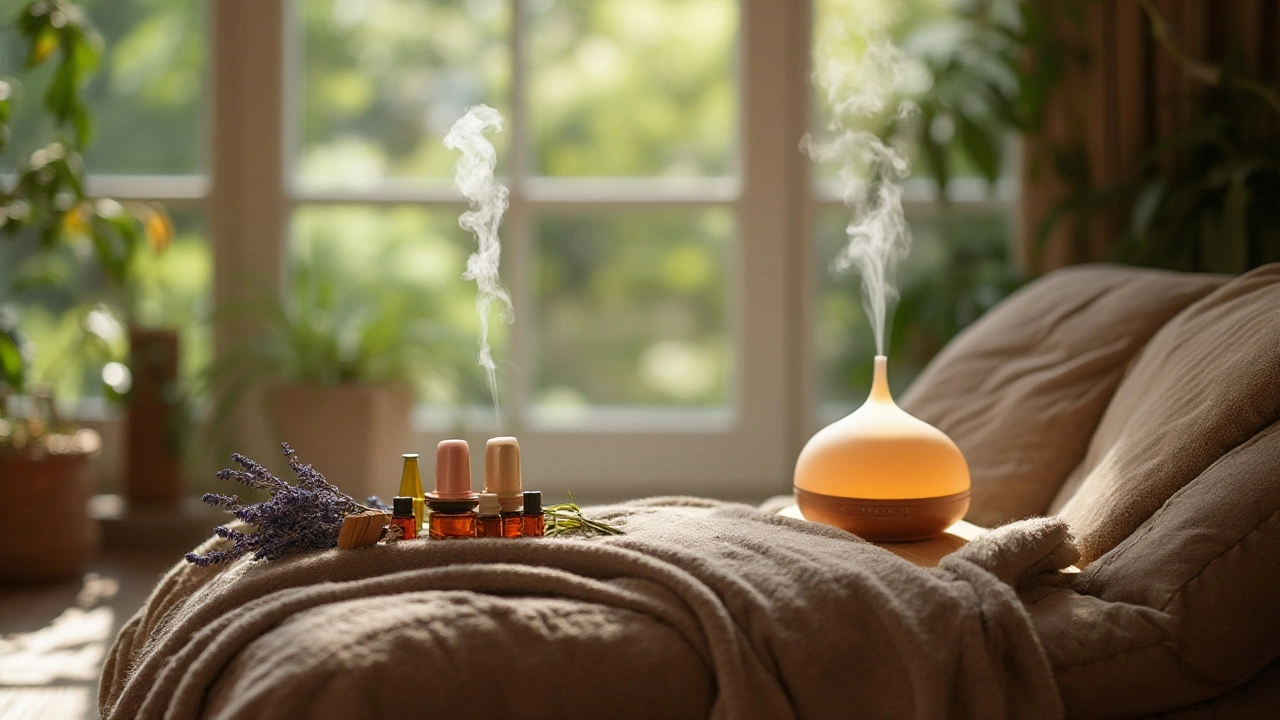Natural Healing: Simple, Science-Friendly Ways to Feel Better
Want relief that feels natural and actually works? Natural healing isn’t magic—it's a mix of small habits and tools that help your body and mind recover. You can start today with things that fit into real life: better sleep, smarter food choices, and simple mind-body practices.
Start with breathing and awareness. Quick breathing exercises calm your nervous system in minutes. Try box breathing: inhale 4 counts, hold 4, exhale 4, hold 4. Do this three times whenever stress spikes. It’s free, portable, and backed by clear effects on heart rate and focus.
Tools that help: aromatherapy and biofeedback
Aromatherapy can ease breathing, reduce anxiety, and help you sleep. Peppermint or eucalyptus often open airways; lavender helps with sleep. Use a diffuser or a drop on a tissue—small doses work. Keep safety in mind: dilute oils for kids and avoid direct contact with eyes.
Biofeedback sounds techy but it’s straightforward: devices show your body signals so you can learn to change them. Heart-rate and skin-temperature feedback help you spot stress early. With a few sessions, many people lower anxiety and improve sleep. Think of it as learning to read your body and respond better.
Mindfulness, movement, and recovery
Mindfulness doesn’t require long sits. Five minutes before a meeting or a quick body scan after dinner makes a difference. Kids benefit too—short, playful exercises build focus and calm. Meditation also helps prevent burnout and can boost productivity when used regularly.
Move in ways that feel good. Sports massage and gentle stretching speed recovery and reduce pain after workouts. If you exercise, add foam rolling or a short massage session to your routine to lower injury risk and keep muscles working smoothly.
What you eat matters. Start mornings with a balanced breakfast—protein, fiber, and healthy fats—to steady energy and cravings. Health juices can hydrate and support recovery after exercise when they contain protein or greens. Smart snacks between meals keep energy steady and stop overeating later.
Your gut affects mood, sleep, and energy. Small changes—more fiber, fermented foods, and less ultra-processed food—help your microbiome. You don’t need expensive supplements to start: add plain yogurt, kimchi, or high-fiber fruits and watch how digestion and energy shift.
Creative activities heal too. Art, music, and movement lower stress and improve mood without talking through everything. These therapies are practical for anyone—try doodling, a short playlist, or a 10-minute dance break when you feel off.
Pick one or two changes and stick with them for three weeks. Natural healing grows through tiny, consistent steps. If a symptom persists or worsens, see a healthcare professional. Otherwise, mix aromatherapy, simple breathing, mindful breaks, smart food, and recovery habits to see real, steady changes in how you feel.

Simple Guide to Starting with Aromatherapy: A Beginner's Journey
Inhale the serenity of nature with this beginner's guide to aromatherapy. Discover the transformative power of essential oils and learn how to incorporate them into your daily routine. Whether you're seeking relaxation, improved sleep, or a mood boost, aromatherapy offers natural solutions. Explore the essential equipment, methods, and safety tips to start your aromatic journey today.
Read More